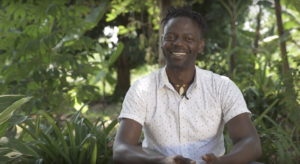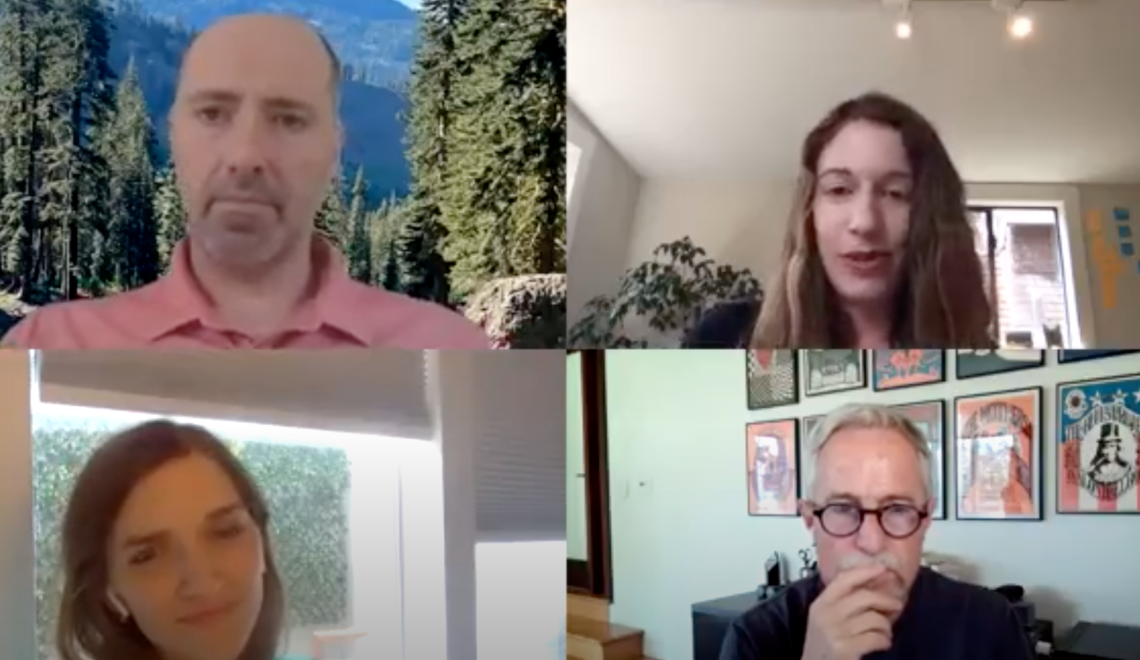Creating climate-friendly business can seem daunting on a good day, let alone when the world is rocked by a pandemic. But if not now, when? We took some time to chat with climate-smart innovator Teddy Ruge, food and business writer Larissa Zimberoff, and Kuli Kuli founder & CEO, Lisa Curtis.
If you missed the webinar, Creating Climate-Friendly Businesses Despite Global Chaos, you can watch it by clicking the link, or watching it below. We’ll provide a quick summary in this article too.
3 Highlights from our Climate-Smart Webinar
This is a tricky time for small businesses and farmers around the world. We hope this webinar offers a bit of hope, and solid reason to move forward with sustainable initiatives because of uncertain times—not only despite them.
-
Sustainable and Ethical Initiatives Can Bolster Each Other
Sustainable and ethically-driven initiatives do not inherently compete as priorities, for a business to consider. About four minutes into this webinar, Teddy Ruge explains how moringa farming became a catalyst for prioritizing sustainable farming and providing income to farmers. With climate change already impacting Uganda, Teddy felt that sustainable farming was the best way forward. In his experience, subsistence farmers have a lot of land, but they often do not have the resources to turn that land into a consistent income.
Teddy began moringa farming by wondering “how do we incentivize famers to plant this particular plant the way that we want to be planted,” meaning, in a sustainable manner? To make this happen, Teddy wanted to ensure that farmers would also benefit from the sustainable and commercial farming of moringa.
To do this, Teddy devised a Secure Income Program. By calculating how much income one hectare of moringa farming brings, and dividing that amount into monthly payments. Every month, farmers are guaranteed a payment so they can plan their finances, rather than waiting for a profit for a product that is months away from going to market.
2. Functional Food Forests Are the Way Forward
Teddy mentions the idea of a “functional food forest.” These forests are based on the principle that everything is interconnected. From an ecological perspective, this premise is true. Food forests and farms mimic “natural forests” in terms of ecological services. They also help mitigate drought, floods, and other increased challenges associated with climate change.
Food forests offer a closed, sustainable system where the soil is nourished with organic practices, which also supports the lives of any flora and fauna that find their way into this food forest ecosystem.
When farmers do not have to worry solely about food security and income, there is more incentive to care for the ecosystem and support climate-smart agriculture. Deforestation is a pressing issue, and moringa can be part of reforestation efforts. Moringa exist well with other crops and species, and can help restore landscapes damaged by unsustainable farming, such as that of sugarcane.
3. People Want to Care About Their Brands
About thirty-five minutes into the webinar, founder and CEO of Kuli Kuli, Lisa Curtis explains a key point. Businesses can benefit from having ethical supply chains and sustainability as part of their core mission. Now more than ever, people want to feel connected to the goods they purchase. With food, people want to feel connected in several ways. Who grew the product? What is the land like where this food was grown? Do these farmers get paid well? How is the land cared for?
Small companies that change the lives of people can be role-models for bigger companies too. Imagine a world where every company valued people and the land first, before profits?
In the words of Lisa Curtis, “that transparency and authenticity and consistency is something that so many food brands in America are searching for today.” It’s also one of the reasons investors may choose to invest in certain businesses.
For more highlights, please watch our webinar below about creating climate-friendly businesses during uncertain times. Feel free to share with anyone who also inspires you!
Thank you to our supporters, customers, suppliers, and our entrepreneurs, as we unite our sustainability efforts across the world. Feel free to leave any questions or comments below!
Follow us @kulikulifoods to learn more about innovators and climate-smart agriculture.












